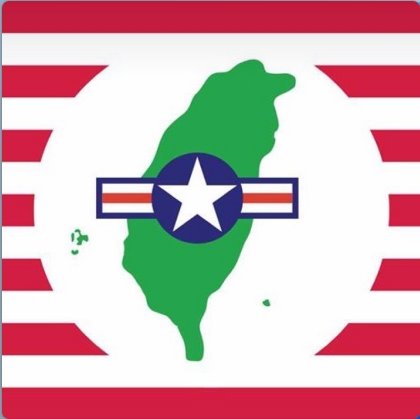先有自治組織,還是先建國後有組織 蔡吉源 Gavin Tsai 20240423
先有自治組織,還是先建國後有組織 Gavin Tsai 20240423
任何地區要成為聯合國會員國,一定要有一個國際共同承認的合法的政府,再由兩個聯合國會員國共同推薦。這個地區要獲得普遍的承認成為一個主權獨立的國家,就必須根據蒙特維多公約 (Montevideo Convention) 所規定之充分且必要條件:
- 固有的領土 (inherent territory);
- 具有領土請求權之永久的住民 (permanent inhabitants with rights to claim inherent territory);
- 合法且被承認的政府 (legalized and recognized government):及
- 被承認政府的外交權能 (executive power to deal with foreign affairs)。
中華民國流亡難民政府偽政權在台灣既沒有台澎固有領土,也沒有台澎永久住民,更不是台灣住民合法的政府,不可以違反戰爭法*,在台灣成立一個中華民國台灣國的條件,所以不可能在台灣獨立建國。
自2015年10月19日起,台灣已經具備
- 固有的領土,
- 具有領土請求權之永久的住民,
- 合法且被美國承認的台灣 (自治) 政府,及
- 台灣(自治)政府對美國和日本的外交權能。
所以,2015年是由歐巴馬主動向聯合國要求將台灣納入UN的會員國名單裡。NYT (New York Times; 2020.5.1) 證實: Kelly Craft, US Ambassador to UN, 說: US在UN使節團的Twitter有”台灣被排除在UN之外,不但公然侮辱台灣,而且違反UN創立的宗旨”。 同年5月4日,美國參議院 (The Senate of the United States) 提案力促美台建交。參議院外交委員會說明: 美台建交指的是美國與台灣建交,根據台灣關係法,美國不能與中華民國建交。因為: TRA enacted by the Senate; TG proofed and legalized by the Senate; to establish diplomatic relations b/t USA and Taiwan should also be guided by the Senate.
本土台灣人自主組成之台灣政府是不受中華民國憲政體制框限的組織,由一群充分覺醒的本土台灣人,依循國際法理於2013年4月25日,依據聯合國憲章(UN Charter)第73條,舊金山和約(SFPT)第2,3,4,23條,及美國台灣關係法(TRA)第1--18條之規定;於美京華盛頓特區召開國際記者會,承認台灣係美國的軍事占領地;依法對美國及世界各國公開宣佈成立台灣政府,追求高度自治。台灣住民自主組成的台灣政府尚未受到部分國際社會的承認,也尚未實質控制台灣。猶如【巴勒斯坦解放 (獨立建國) 組織於1964成立,1974成為聯合國非會員觀察員。1988.11.29成立巴勒斯坦自治政府,2015年9月,獲得美國及聯合國同意,得以派遣正式會員觀察員參加聯合國大會】。本土台灣人自主組成之台灣政府也在爭取成為聯合國觀察員會員國(Member Observer Status State,已有海地表示贊同。中華民國流亡政府早就必須從台灣離開,回到她的固有領土金馬地區,與中華人民共和國共享中國統一的喜悅!凡是認同台灣,誓為台灣效忠的中國流亡難民及其後代子孫,我們歡迎他們根據聯合國國籍法及美國歸化法案入籍台灣。凡認同中國的台灣住民要回歸中國者,也將受到應有的歡送與祝福!
###
參照 : 聯合國憲章 第73條 Article 73
聯合國各會員會國,於其所負有或承擔管理責任之領土,他們的民族尚未獲得充分自治之程度者,承認占領地領土住民自治之利益為至高無上之原則,接受本憲章神聖之信託,在所建立之國際和平和安全制度下,以充分增進這些領土住民福利為義務,且為此目的: Members of the United Nations which have or assume responsibilities for the administration of territories whose peoples (people 加s 是民族或住民之意,中國人譯成人民,有故意誤導視聽之嫌) have not yet attained a full measure of self-government recognize the principle that the interests of the inhabitants(住民) of these territories are paramount, and accept as a sacred trust the obligation to promote to the utmost, within the system of international peace and security established by the present Charter, the well-being of the inhabitants(住民) of these territories, and, to this end:
- (子)要保證尊重當地居民所重視的文化,保證他們在政治、經濟、社會、及教育進展方面,給予公平待遇,且保障他們不受虐待。 a) to ensure, with due respect for the culture of the peoples concerned, their political, economic, social, and educational advancement, their just treatment, and their protection against abuses;
- (丑)根據各該受託領土及其居民特殊之環境、及其進化之階段,發展自治政府;對該地居民之政治願望,予以適當之注意;並助其自由政治制度之逐漸發展。 b) to develop self-government, to take due account of the political aspirations of the peoples, and to assist them in the progressive development of their free political institutions, according to the particular circumstances of each territory and its peoples and their varying stages of advancement;
- (寅)促進國際和平及安全。 c) to further international peace and security;
- (卯)推動建設計畫,獎勵研究;各國彼此合作,並於適當之時間及場合與專門國際團體合作,以求本條所載社會、經濟、及科學目的之實現。 d) to promote constructive measures of development, to encourage research, and to co-operate with one another and, when and where appropriate, with specialized international bodies with a view to the practical achievement of the social, economic, and scientific purposes set forth in this Article; and
- (辰)在不違背安全及憲法之限制下,按時將關於各會員國分別負責管理理領土內之經濟、社會、及教育情形之統計及具有專門性質之情報,遞送秘書長,以供參考。本憲章第十二章及第十三章所規定之領土,不在此限。 e) to transmit regularly to the Secretary-General for information purposes, subject to such limitation as security and constitutional considerations may require, statistical and other information of a technical nature relating to economic, social, and educational conditions in the territories for which they are respectively responsible other than those territories to which Chapters XII and XIII apply.
